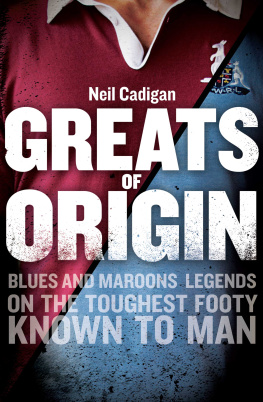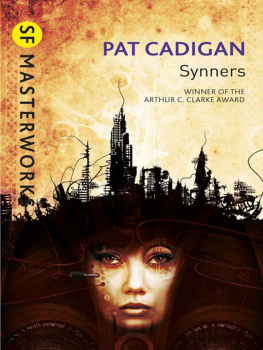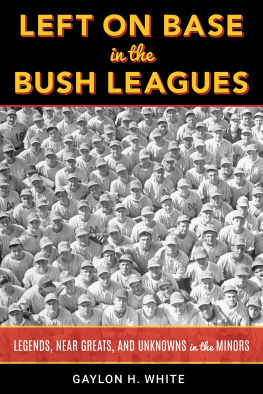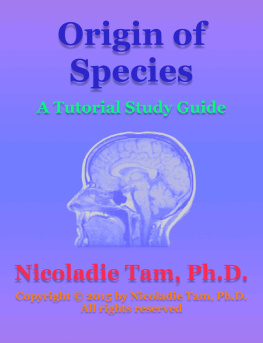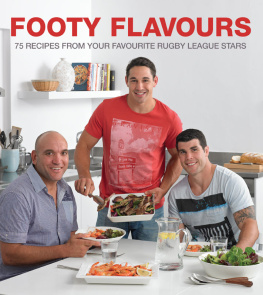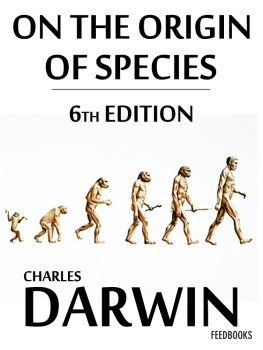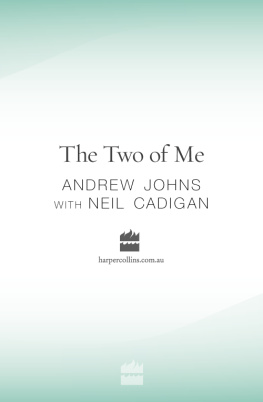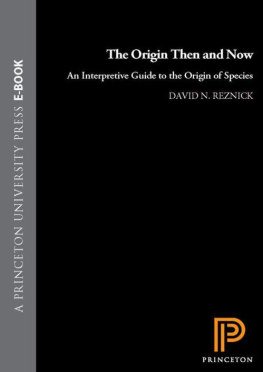I n 2011 we will celebrate the 30th State of Origin series. Who could possibly have comprehended when the concept was introduced as a one-off trial in 1980 an event deemed by many in NSW to be a meaningless exhibition match that would last one night that it would become arguably the greatest team sporting event in Australia. Certainly, it is a true amphitheatre of great human achievement; the toughest form of rugby league the world has seen.
One thing that cant be understated is the freakish sense of timing Origin has possessed. That first match in 1980, seen by NSW critics as a token gesture to placate whingeing Queenslanders, was staged just in time for footy icon Arthur Beetson to play his first match for the Maroons at age 35 but late enough for his one Origin appearance to coincide with the burgeoning careers of Wally Lewis, Mal Meninga, Kerry Boustead, Colin Scott and Chris Close. By the time Origin had gone from one-match extensions of the traditional residential-based interstate matches in 1980 and 81 to the full-blown three-match series that any fan in their 40s or younger has grown up on, the outstanding crop of Queenslanders that also included Gene Miles, Mark Murray, Greg Dowling, Paul Vautin, Paul McCabe and Bryan Niebling had changed the spirit of a whole state with their conquests, against the new breed of Cockroaches that featured Peter Sterling, Brett Kenny, Wayne Pearce, Eric Grothe, Steve Roach, Ben Elias, Royce Simmons, Garry Jack, Noel Cleal, Michael OConnor and Andrew Farrar.
The popularity of Origin is staggering. It is an industry in itself. Early in Origin history, television ratings soon surpassed anything recorded for regular sporting events. More than two-thirds of the viewing public in NSW and Queensland tune in and, if memory serves, in the late 1980s 78 per cent of the New Zealand audience watched a match.
Origin, and particularly the interstate rivalry it has created, has become part of our culture, stretching throughout society, beyond the clan of rugby league followers. Its star of the 80s, Wally Lewis, has his nickname, The King, as firmly entrenched in the Australian vernacular as the moniker is for a certain Elvis Presley in the United States.
Several books have been written, on mostly a chronological basis, about State of Origins results, records and personalities. Greats of Origin , however, is designed to get inside Origin and what it means to those who have graced its stage; to provide an insight into the emotions, motivations and most pertinent memories of players and coaches who have made their mark, one way or another, on Origin history.
The title Greats of Origin is a trifle misleading, I must admit. When given an open book (excuse the pun) by my publisher to pen a FOGS look at Origin (FOGS stands for Former Origin Greats, another term that is part of rugby league dialect), I did not want to restrict the book to just the famous names, although their stories form an essential part of the book. To me, the romance of Origin reaches further than that. State of Origin has thrown up some unlikely and fleeting names too, and Origins annals are about the endeavours of the unfashionables as much as the highly hailed league stars. As Ricky Stuart so eloquently puts it, some players can be stand-outs at club football and not cut it in Origin, some can play for Australia but not star in Origin, yet some are made mostly for Origin football. The series is unique in what it asks of the soul of a footballer.
Thats why it was worth bringing back to life the tales of Phillip Duke, Paul Field and Rex Wright, who were plucked from NSW country football to take their place besides the Cronins, Mortimers and Prices in the 1980s. The Origin spirit is captured best by Paul Vautins team of Queenslanders in 1995 which, lacking their Super League-bound superstars, was branded the worst Maroons squad to ever play Origin and thus had no hope of winning the series, yet they won and are now champions of the greatest Origin upset, and arguably Origins greatest achievement. Many of the rookies of that side went on to forge marvellous careers players like Robbie ODavis, Matt Sing, Adrian Lam, Brett Dallas and Ben Ikin but the beauty of the story lies in how blokes like Craig Teevan, Terry Cook, Tony Hearn and Gavin Allen the only player who would not commit to Super League or the ARL had their lives touched by the experience of that series.
Brett Kimmorley and Brett Finch are included because they typify the vagaries of sport and the love em or hate em footballers who had wildly fluctuating experiences for NSW in that beast that is State of Origin; their stories show how it can elevate, or destroy, a footballers reputation.
I conducted many interviews with a range of people from Origins great history and, interestingly, it is the camaraderie, lifelong friendships and sense of achievement that bonds them more than the results, the trophies or man-of-the-match awards. Its the respect they developed from knowing what they went through together sports version of war under the most intense physical and mental stress possible. And while some of them felt embarrassment about playing only a fleeting role in Origins three decades of headlines, or were judged harshly on their efforts, they should never in any way feel that way. Because it is every young footballers dream to run out to the raucous sounds of the crowd and play State of Origin just once. So many would give anything for that experience. And they have done it.
So this book was never designed to tell the stories of only the icons of Origin, although many of them including Mal Meninga, Darren Lockyer, Phil Gould, Wayne Pearce, Ricky Stuart, Wally Lewis, Steve Mortimer and Chris Close have imparted their wisdom and the lessons of their experience. To all of those interviewed, please accept a sincere thankyou for the opportunity to listen to your recollections and hear what State of Origin rugby league has taught you and meant to you; I hope I have done you justice. I admit the balance of the book is swayed slightly towards the Queensland champions of Origin, while Ive spread the NSW section to include more of the less heralded players. But those household Maroons names are champions of rugby league generally to me. And, sure, there are many State of Origin legends who have not been included this time, anyway.
I hope this book will lead to a second or third volume of Greats of Origin because there are many, many more whose experiences are worth recording for posterity, and I would dearly love to pick their brains, and their hearts, and put it into words. The aura of Origin is unending.
Lastly, this war between the states has also created an old boys network that crosses the divide namely, the Queensland FOGS and the NSW Legends of Origin which carry out outstanding community work, as well as ensuring that the 403 players who have played State of Origin have an appropriate post-career status. The publishers and I decided to donate 2 per cent of royalties from this book evenly between the two organisations, and Id like to particularly thank the executive chairman of the longer established FOGS, Gene Miles, for his assistance with the project.
Neil Cadigan
March 2011

